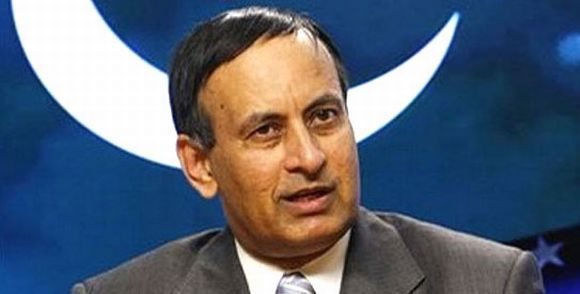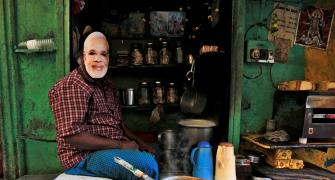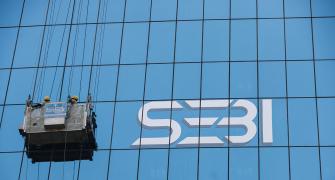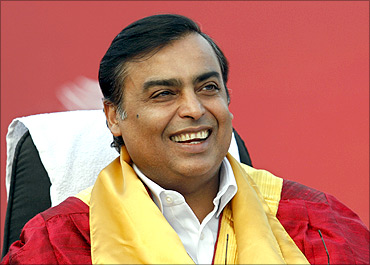 As the United States prepares to sell F-16s to Pakistan, the country's former top diplomat has warned the Congress that such fighter jets would end up being used against India and not against terrorists.
As the United States prepares to sell F-16s to Pakistan, the country's former top diplomat has warned the Congress that such fighter jets would end up being used against India and not against terrorists.
Describing sale of such military hardware and even reported talk of a civil nuclear deal as an appeasement policy towards Pakistani military, Husain Haqqani, the former Pakistani ambassador to the US, has urged the US to tell the leaders in Pakistan that their ambition of rivalling India is akin to Belgium trying to rival France or Germany.
"The Obama administration's consideration of a nuclear deal with Pakistan, just like its decision a few months ago to sell almost $1 billion in US-made attack helicopters, missiles and other equipment to Pakistan will fuel conflict in South Asia without fulfilling the objective of helping the country fight Islamist extremists or limit its nuclear arsenal," said Haqqani.
In a prepared remark submitted ahead of a Congressional hearing on 'Civil Nuclear Cooperation with Pakistan: Prospects and Consequences to the Terrorism, Nonproliferation, and Trade Subcommittee of the Committee on Foreign Affairs', Haqqani said Pakistan's failure to tackle its jihadist challenge is not the result of a lack of arms but reflects an absence of will.
"Unless Pakistan changes its worldview and its compulsive competition with its much larger neighbour even in violation of international commitments, American weapons will end up being used to fight or menace India and perceived domestic enemies instead of being deployed against jihadists," he said.
Currently, director of South & Central Asia at the Hudson Institute, a top American think-tank, Haqqani said competition with India remains the overriding consideration in Pakistan's foreign and domestic policies.
"By aiding Pakistan over the years -- some $40 billion since 1950, according to the Congressional Research Service -- the US has fed Pakistan's delusion of being India's regional military equal. Seeking security against a much larger neighbour is a rational objective but seeking parity with it on a constant basis is not," he said.
"Instead of discussing civil nuclear deals and selling more military equipment to Pakistan, US officials should convince Pakistan that its ambitions of rivalling India are akin to Belgium trying to rival France or Germany," Haqqani wrote.
India's population is six times as large as Pakistan's while India's economy is 10 times bigger, and India's $ 2 trillion economy has managed consistent growth whereas Pakistan's $245 billion economy has grown sporadically and is undermined by jihadist terrorism and domestic political chaos.
Haqqani said unlike other countries, Pakistan did not raise an army to match the threats it faces. Pakistan inherited 33 per cent of British India's army, raised for the Second World War, at independence in 1947 and has sought to identify threats that match the size of that army.
Asserting that since the 1950s, US policy has ended up nurturing Pakistan's military and keeping alive its dream of parity with India, Haqqani told lawmakers that it is time, the
US adopted a policy towards Pakistan that supports the aspirations of its people for a better standard of living instead of allowing its military and civilian hardliners in pursuing unwinnable competition with India.
"The US government has been giving the signal that Pakistan is too important for the US to ignore, which reinforces all of Pakistan's wrong policies. These are policies that both the US and a significant section of the Pakistani intelligentsia would like changed," Haqqani said.









